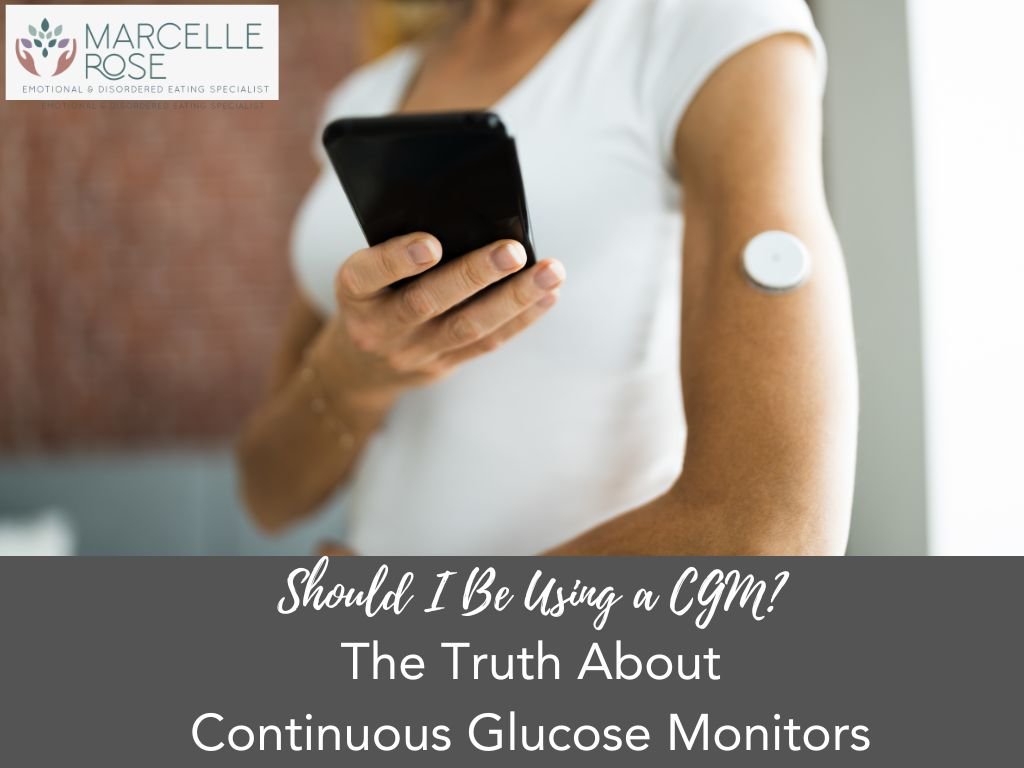Should I Be Using a CGM? The Truth About Continuous Glucose Monitors
You’ve probably seen people talk about continuous glucose monitors (CGMs). Perhaps you’ve seen the adverts for Zoe or the Glucose Goddess or maybe you’re spotted people wearing a small white disk on their upper arm and wondered, what it is?
What Are Continuous Glucose Monitors?
CGMs are devices designed to continuously track blood glucose levels in real-time. For individuals with 2 diabetes, this technology is a crucial tool for monitoring and managing blood sugar levels. High blood glucose levels can pose severe health risks, and dangerously low levels can be life-threatening.
However, in recent years, CGMs have gained popularity among individuals without diabetes. People with prediabetes and those simply looking to improve their overall health have started investing in these devices. In particular, the Zoe program, endorsed by high-profile celebrities and influencers, claims to offer personalised nutrition advice based on CGM data. But is it all it's cracked up to be?
The Pros and Cons of Blood Glucose Monitoring (for non-diabetics)
Stabilising blood glucose for people without diabetes, is beneficial in terms of feeling satiated, energised and preventing cravings. It's one of the many aspects of eating behaviour and nutrition–that I help my clients with. However, this can often be achieved without the need for expensive monitors.
Here are some important points to consider:
Unhealthy Obsession:
Continuously monitoring your blood glucose levels after every meal can lead to unhealthy, obsessive behaviour. This constant tracking can add stress and anxiety, particularly if you already have an unhappy relationship with food. It's important to strike a balance between monitoring and living a healthy, stress-free life.
One-Dimensional Approach:
Focusing solely on blood glucose levels may lead to eliminating foods with other health benefits from your diet. For instance, many people eliminate porridge oats because they cause a blood sugar spike. However, a more balanced approach involves adding protein and natural fats to your oatmeal, along with other forms of fibre such as mixed berries, to help stabilise blood glucose.
The Role of Insulin:
In a healthy individual, insulin is usually effective at lowering blood sugar levels relatively quickly. This natural mechanism helps maintain glucose homeostasis in the body.
Other Factors Influence Blood Sugar:
It's crucial to recognise that it's not just food that affects blood sugar levels. Factors like poor sleep, stress, physical activity, and even your menstrual cycle can all influence your blood glucose levels. Blaming spikes solely on food may be misleading.
The decision to use a CGM should be made carefully. While CGMs can provide data for some individuals, they do not consider the whole picture from a holistic perspective. An unhealthy focus on one perspective when it comes to what you eat can not only be unproductive but potentially harmful. Whereas balancing nutrition and eating habits with an overall well-rounded lifestyle that includes sleep and stress management and regular movement is more the key to better overall health. There's more to health (and life) than the numbers on a glucose monitor!

